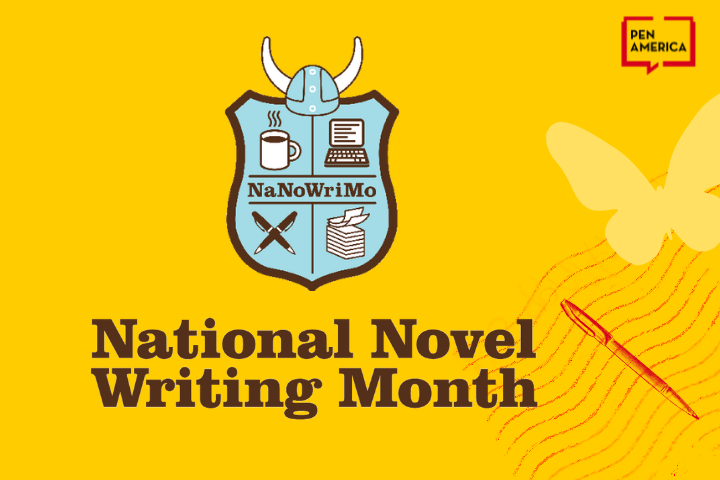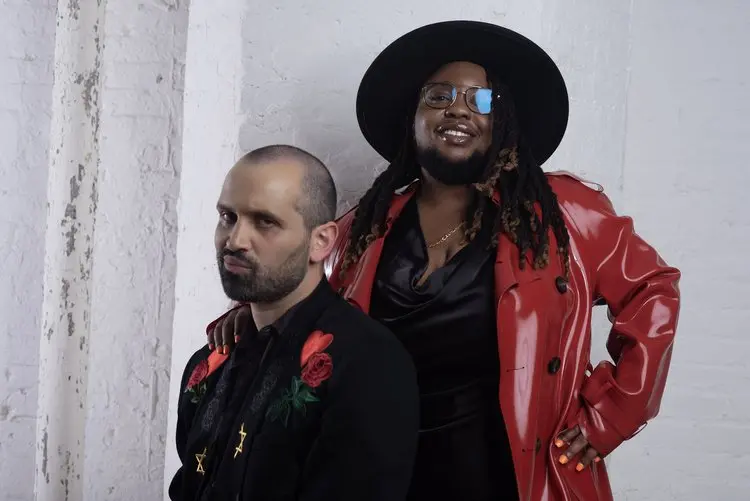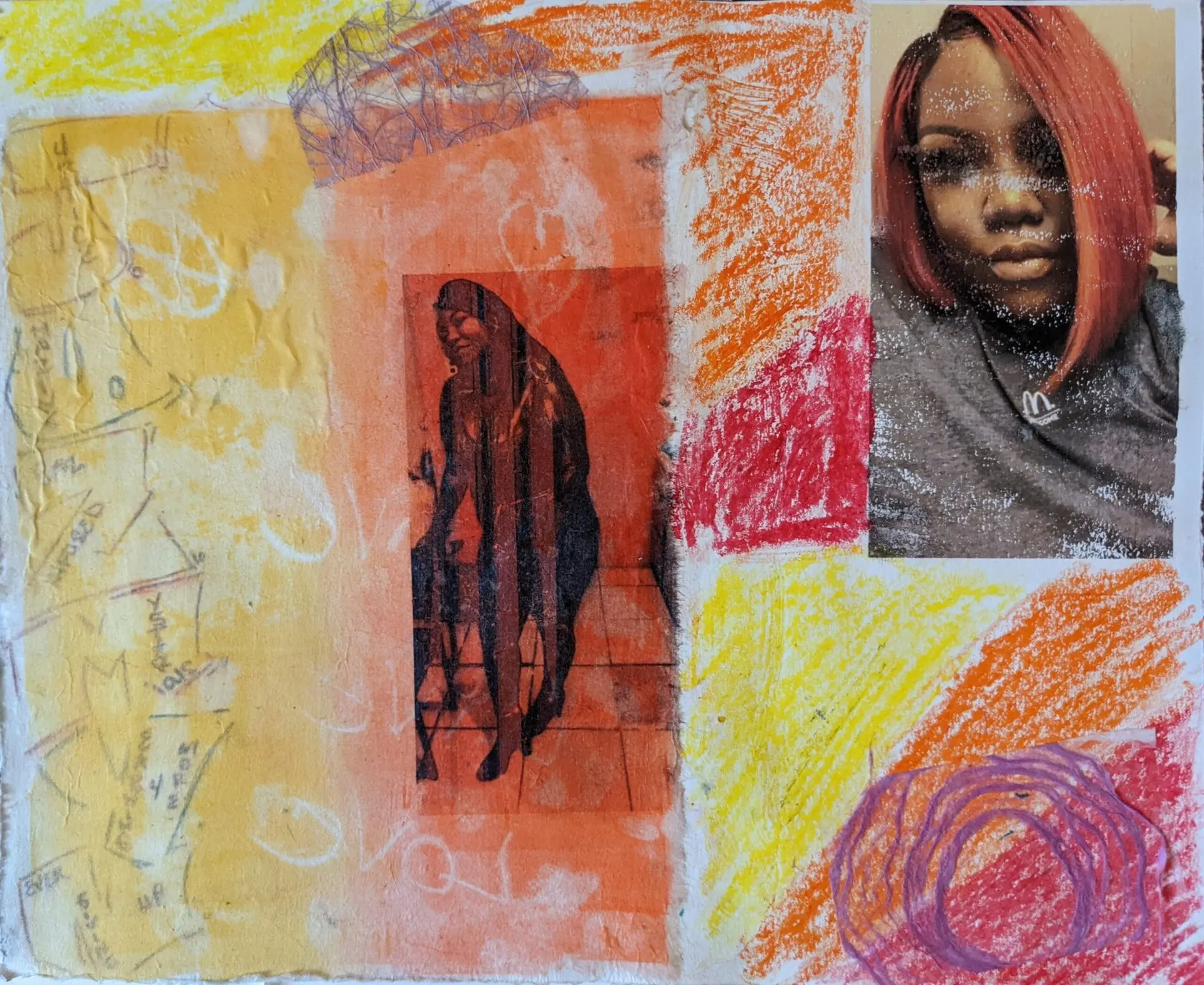Part of a loosely aligned network of autonomous prison book programs across the country, Chicago Books to Women in Prison (CBWP) is an all-volunteer group that distributes books free of charge to incarcerated women and trans people in state and federal prisons across the United States to better serve their needs and interests. Because many more men are imprisoned than women, most prison books programs focus on men’s facilities. Like other prison book programs, CBWP relies on donations of books and funds to support their general operations, such as mailing costs, rent and supplies, and book purchases. For more than 20 years, the group has been dedicated to offering the opportunity for self-empowerment, education, and entertainment that reading provides.
In light of a recent op-ed by Kwaneta Harris on prison book bans and reproductive health, PEN America’s Moira Marquis, senior manager of The Freewrite Project, reached out to Chicago Books to Women in Prison to learn more about why they choose to work exclusively with women’s prisons.
Can you give us a bit of background about how Chicago Books to Women in Prison got started?
Chicago Books to Women in Prison has been getting books to people in prison for more than 20 years. It started as a grassroots effort and became a 501(c)(3) non-profit organization in 2015 with the ongoing mission of providing mutual aid by way of books to those incarcerated, still operating with a grassroots spirit. The volunteers at Chicago Books to Women in Prison have varied reasons that bring them to volunteer — including us. Some common reasons people often cite for volunteering include interest in abolitionism or decarceration, supporting in a direct way people who are affected by mass incarceration, sharing a love of reading with others, and making information accessible that otherwise would not be available.
Why send free books to women in prison?
While prison libraries exist, what they offer varies greatly from facility to facility. Many libraries may have limited hours, out-of-date or sorely lacking book options, or limited accessibility. Books-to-prisoners programs like ours do our best to send people books they actually want, whether it be a coloring book to pass the time, a thriller to get lost in, or legal information to help them reduce their sentences. Many of the people we work with don’t frequently receive mail, so hearing their name at mail call can provide a powerful connection with the outside world. It also shows staff and peers that someone outside cares about them.
Is there a difference sending books to women in prison than sending books to men in prison?
Many women in prison for violent crimes committed those crimes against an abuser. Also, three out of every four women in prison are mothers of minor children, and nearly all women in prison have been victims of intimate partner violence or abuse. So we carry books on recovering from abuse and trauma, as well as books on parenting from prison. We also have a section of children’s books that women request in order to read them aloud to their children or to send home as gifts. Whether books are for educational purposes, escapism, or spiritual support, we regularly reflect on what our letter writers are interested in and do our best to stock books that meet those needs.
Recently, the Florida Literature Review Committee banned PEN America’s book, The Sentences that Create Us: Crafting a Writer’s Life in Prison. It’s a creative writing book but they said it presents a threat to the security of prisons. Are there specific genres, topics or titles that people regularly request that are rejected or disallowed? If so, what are the reasons facilities give (if any)?
We often get an explanation of why a book is rejected, usually in a form letter, but not always. We know certain things are rejected across the board: nudity in art or health books, any depictions of guns or tattoos. But for others it can be hard to guess the reasoning behind the rejection. One prison won’t allow books with mandalas in them or blank origami paper. We’ve seen prison abolition books rejected, such as Mariame Kaba’s We Do This ‘Til We Free Us. We rarely get any explanation of the reasoning behind the rejection, beyond an indication that it was rejected for its condition, such as having water damage or discoloration, or for its content. A frequent reason given is that the book in question threatens the security of the facility, even when the book is nothing of that nature.
LGBT Books to Prisoners recently shared on Twitter that Laura Erickson-Scroth’s Trans Bodies, Trans Selves: A Resource for the Trans Community has been banned in Wisconsin prisons. According to Prison Legal News, the state considers the book “pornography.” What are your experiences sending trans books to people inside?
We’ve had some prisons return Trans Bodies, Trans Selves as well, which is frustrating since it is so comprehensive, and we sometimes get specific requests for it. We’ve also had trouble getting a Mayo Clinic medical book into some prisons. Both books have been rejected because of a few pages with clinically relevant photos or illustrations of naked people. Usually we’ll send another book that is a reasonable substitute. There is an initiative under way to better organize books-to-prisoners groups to challenge restrictions, which can be difficult and time-consuming to try on one’s own.
Our requests from trans people have definitely increased over the years, though they still add up to only a small percentage of our total orders. We make a special effort to stock books addressing trans issues and needs. Happily, we recently received a grant from Resurrection Lutheran Church here in Chicago to purchase LGBTQ+ books.
Have the challenges of sending books inside become more so over the time you’ve been doing this work? Specifically, are you getting more returns or rejections or has there been an increase in the number of facilities that you’re not allowed to send free books to?
Yes, some prisons have become more restrictive in what they accept. The reasons vary. More prisons are no longer accepting composition books, and the unstated reason seems to be that the prisons themselves sell them. More are requiring new books only. The rationale appears to be that a brand new book is far less likely to be tampered with in terms of facilitating contraband. There is no evidence that any prison book program has sent contraband into a prison. Finally, many books are rejected for the ostensible reason that they “present a threat to the security, order, or rehabilitative objectives of the correctional system.” (That wording is from the form letter used by the Florida Department of Corrections.) That kind of rejection can cover everything from coloring books, because they are said to encourage tattoos, to abolitionist books, which implicitly challenge the prison system.
What can people do to get involved with prison book bans or help Chicago Books to Women in Prison?
There are a number of ways to support our work. The easiest way is to visit our website to learn more about the ways to donate time, money, or books. Our guidelines explain the types of books we can accept if people are interested in donating new or gently used paperbacks of in-demand genres.
We also have great relationships with several bookstores, such as Da Book Joint and Women and Children First, that host wishlists on our behalf to help us get books that are frequently requested but not often donated.
If you are in the Chicago area, you can also learn about being a volunteer by writing to us at [email protected]. And finally, you can follow us on Facebook, Twitter, and Instagram to keep up with us and help spread the word.
Moira Marquis is the senior manager of The Freewrite Project for PEN America’s Prison and Justice Writing Program. She has worked with Asheville Prison Books and co-founded Saxapahaw Prison Books. She is co-editor of the forthcoming volume, Books Through Bars: Stories from the Prison Books Movement (University of Georgia Press, 2024).









